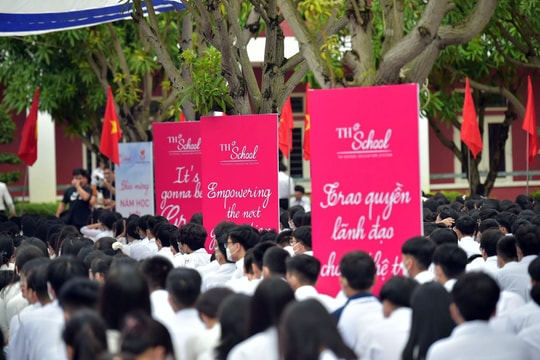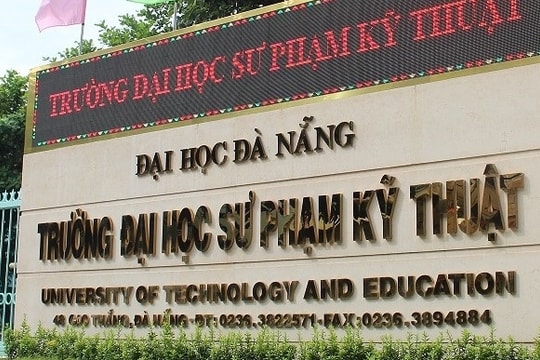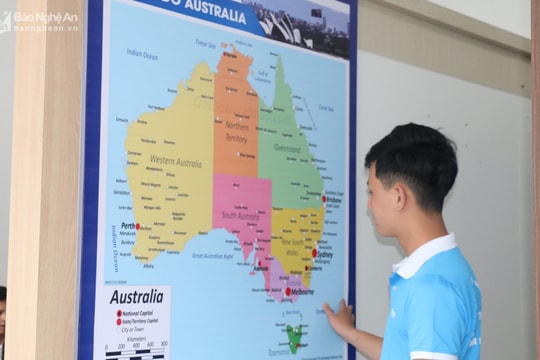Vietnamese students talk about the university environment in the US
One year studying at Earlham College - I have somewhat understood that college is not only a place to teach a profession, but also a place to practice knowledge, skills, and orientation for lifelong learning.
By giving students the right to choose, defending their views, and requiring them to be honest and responsible for their choices, American universities prepare students with the knowledge, skills, and courage to lead an independent life after graduation.
Choosing a class - building self-control
Unlike Vietnamese universities, American universities do not divide classes or prescribe courses for each class. Each major has required and elective classes, and students register for classes based on them (maximum 18 credits per semester, each class is 3-5 credits).
If found inappropriate, before mid-term, students can register to quit.
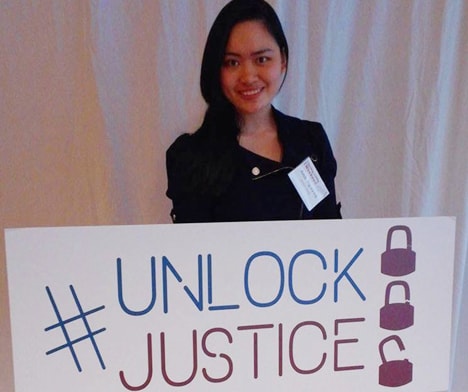 |
| During an activity in Washington DC. (Photo: Quynh Anh) |
I have met many people who majored in natural sciences but took many humanities and arts classes and vice versa. If the school does not have the desired course, they proactively read books, take summer courses or study online.
When asked why, they replied: "Because it's interesting and necessary." Thus, students are completely autonomous and responsible for their own learning. Schools provide tools and opportunities, but students must find their own path.
This rich educational experience is geared toward a free and liberating lifelong learning. One of my Oriental Studies professors earned her BA and MA from Stanford University in Applied Mathematics and Finance, but did her PhD at Columbia University in Japanese Literature. The logical thinking she acquired from her Math studies still serves her well in her literature studies.
Graduating from a major does not mean that you will definitely work/study for a master's degree related to that major in the future, and having to change direction is a reluctant choice. A degree is a recognition of ability in a field after 4 years of university, but does not limit ability in other fields.
Discussion - a springboard for critical thinking
Class sizes at American universities vary widely - some have as few as five students, while others have hundreds. But in any case, discussion is an essential element.
For example, one session in my Philosophy of History class went like this: Students were assigned a 50-page reading on the views and methods of several postmodern historians (which had been uploaded to the class group a month earlier). At the beginning of the session, the instructor gave students 5 minutes to review the reading, put these historians in a large table, and compare them with historians of other theories.
From there, the lecturer raises questions about similarities and differences in their views on issues such as the nature of cause and effect, the relationship between humans and society. The discussion often leads to conflicting views. The lecturer - through guiding questions and slideshows, has the role of coordinating the discussion, avoiding digressions but not imposing his/her views.
Thus, learning is not a one-way activity from lecturer to student. Each student's educational experience, even in the same class, is unique. The lecturer is the one who goes first, helping students have the environment, methods, and tools to acquire knowledge, but each student must know how to defend his or her own point of view and be open and ready to think seriously about different points of view.
There are still important points to agree on, but if students disagree, they can ask questions for the whole class to consider. Sometimes seemingly silly questions can reveal an interesting idea that most people miss. If students are not convinced by the discussion or test scores, or want to learn more about an idea in the paper, they can come to the instructor to discuss it further.
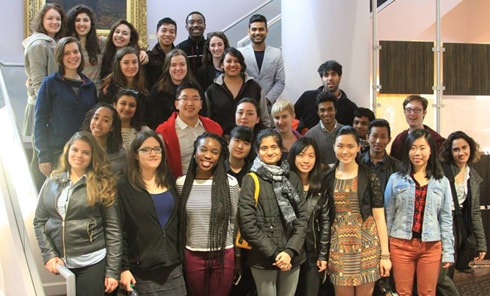 |
| During an activity in Washington DC (Photo: Quynh Anh) |
Lecturers sometimes rely on student feedback to change their teaching methods and materials.
In fact, lecturers here often say, "I may be wrong," as a way to encourage critical thinking.
Research - can't be like a parrot
If choosing a class gives students the right to choose, discussion gives students the right to have a point of view, then research requires students to have a firmly defended point of view. For the final paper of the class "Communicating in music", I wrote a 10-page essay to prove: "Ca tru has unique cultural and artistic values."
Looking at my very "peaceful" thesis, the professor commented: "You did a very good job of looking up information, but it is not considered research. To fully present about Ca Tru, even a thick stack of books would not be enough, but I want this paper to show your own approach."
I was startled to realize that I still kept the habit of writing traditional expository essays: no need to experience the phenomenon but only collect experts' opinions to rearrange....
According to my research, not just in college, but right from elementary school - American students are taught that any work - whether simple or elaborate, if it is research, must express a specific point of view.
That view may be similar or different from existing views, but it must be an opinion proven after serious thinking, not just a collection of expert opinions and parroting them.
Professors also always remind us: "No matter how new or unique your viewpoint is, you must always actively seek out and seriously consider opinions that contradict your hypothesis, and be ready to change your hypothesis if there is enough evidence. If you only focus on finding sources that are favorable to you and hastily reject sources that are contrary to you, then you are not being objective and honest in science."
The difference
Sometimes, I also feel confused about the academic freedom of American universities: when different views on the same matter are recorded, then in the end, what is right?
I asked a psychology professor about this question and received the following advice: "People cannot choose what is best for the world, but they can choose what is most suitable for themselves, at each moment."
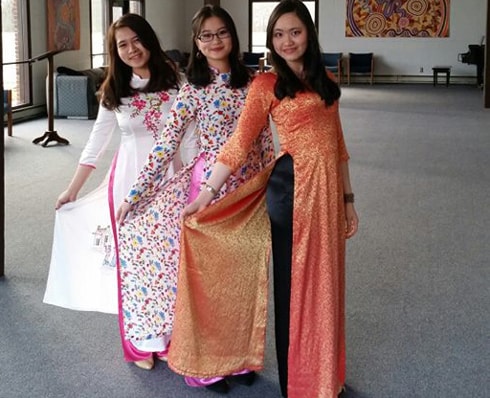 |
| "Spring festival" is the spring festival of Asian students (Photo: Quynh Anh) |
I remember, before every school meeting, we were all read a pledge: "I understand that my statements represent my views, and mine alone. I do not claim to represent anyone, or any ideal."
The debate about education in Vietnam often raises the issue of graduating from school and working in a different field than the one in which you study. American universities taught me that university is not only a place to teach a profession, but also a place to cultivate a foundation of knowledge, skills, and orientation for lifelong learning.
The university provided the conditions and tools for me to explore the academic world, but I was the one who chose and was responsible for my own education - a unique educational experience that suited my strengths and aspirations.
Learning is not only to practice critical thinking but also to nurture an open and tolerant heart: having your own independent opinions but still acknowledging and respecting the opinions of others. Feeling that philosophy from a year studying at Earlham - I have come to understand a part of Malcom Forbes's saying: "The purpose of education is to replace an empty mind with an open one".
According to Vietnamnet.vn

.jpg)
.jpg)
